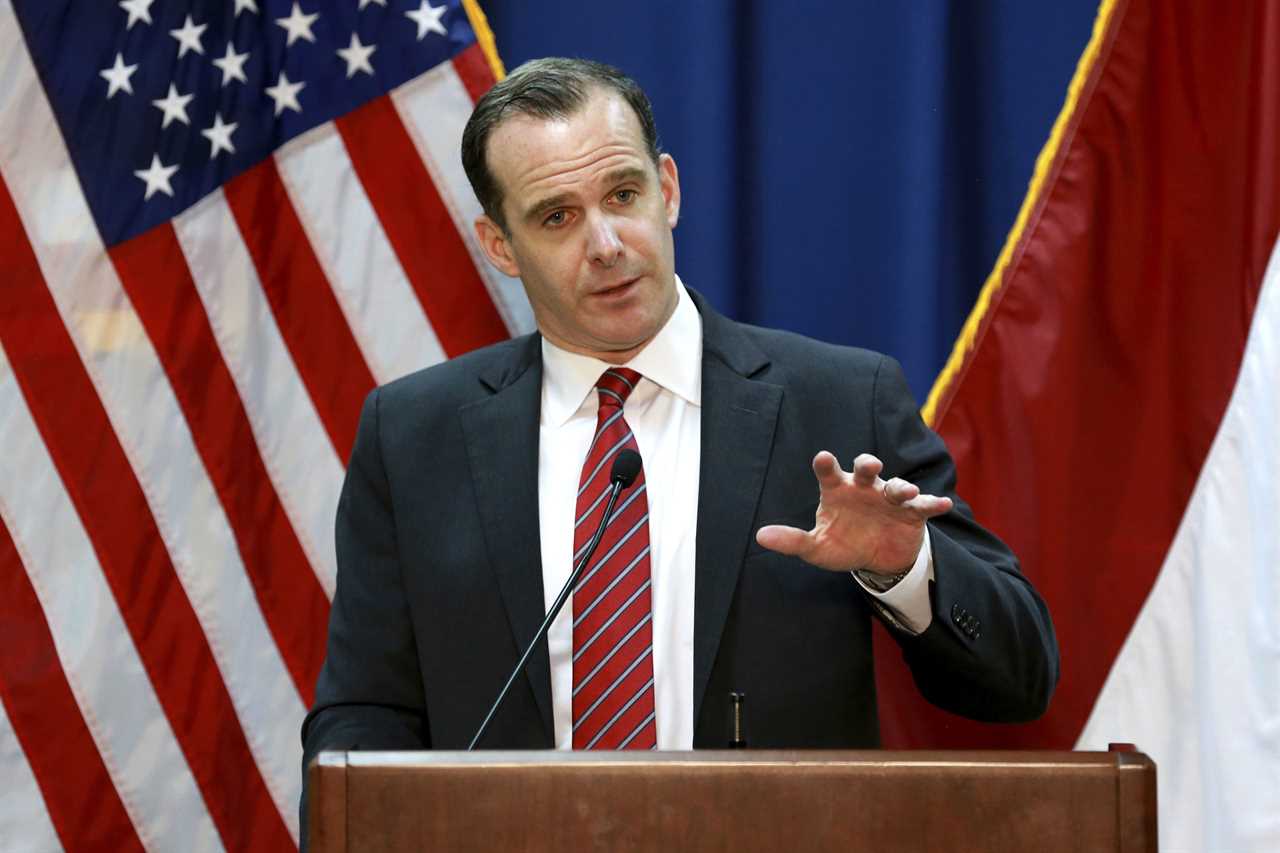
The White House doesn’t know when Israel plans to shift to a less-intense phase of its retaliation against Hamas, a senior administration official told analysts Thursday evening, adding that the war could last deep into 2024.
Brett McGurk, the National Security Council’s top Middle East official, held a Zoom briefing with a handful of experts on Thursday, during which he discussed the Biden administration’s thinking on the roiling conflict. Three people familiar with the 45-minute conversation, granted anonymity to speak freely about the private chat, said McGurk was candid about what the U.S. knows and doesn’t.
“We don’t know when the downshift is going to happen,” McGurk said, per one of the people, though the senior aide noted they’ve seen encouraging signs Israel is moving toward lower-intensity operations, namely the announced withdrawal of five brigades from Gaza.
The administration in recent days has breathed a small sigh of relief that Israel will no longer conduct large-scale bombing runs and ground operations that have seen 22,500 Palestinians killed and 85 percent of Gaza’s 2.3 million population displaced. But McGurk’s candor suggests the administration has yet seen no concrete sign of a tactical shift and that there’s little visibility into when the change will happen — despite the administration’s public confidence and closed-door urging.
McGurk, citing Israeli officials, added that the conflict could last for a long time, potentially until the end of the year. Israeli officials have said publicly that they expect the war to continue for months.
If it does, that could increase the chances of the war spreading far beyond its borders, potentially drawing America further into a sprawling regional conflict. The military is already drafting plans to hit back at Iran-backed Houthi militants who have been attacking commercial shipping in the Red Sea and coming up with ways to anticipate and fend off possible attacks on the U.S. by Iranian-backed forces in Iraq and Syria.
There was also a discussion about the return of Palestinians to their homes in Gaza’s north, an area devastated by Israel’s monthslong bombing campaign, partly because military operations are dwindling there as Hamas has been “dismantled” there, McGurk said, according to a second person. That echoes language Israeli officials have used.
He also said the U.S. was discussing this possibility with the United Nations but was aware many homes had been destroyed or are unlivable. One idea is training about 6,000 members for a Palestinian security force, but that would require about eight to 10 months.
The briefing was light on specifics and McGurk covered much of the ground administration officials say in public, including stressing the humanitarian crisis and the need to find ways for Palestinians to return to their homes in northern Gaza. Still, it made clear to those familiar with McGurk’s comments that the U.S. is less aware of Israel’s intentions than it lets on, even though it has collected intelligence on Israel’s war conduct.
“They just don’t know,” the third person said of the conversation’s main takeaway.
The National Security Council didn’t respond to a request for comment.
Israeli Defense Minister Yoav Gallant on Thursday laid out Israel’s plans for the next phase of the war, saying there would be a scaled-down “new combat approach” in northern Gaza. When the fighting ends, the War Cabinet member suggested Israeli forces will maintain security in the strip while a Palestinian entity administers the enclave. Gallant, however, was also light on specifics.
Secretary of State Antony Blinken will seek to get more out of his counterparts during his visit to the Middle East starting Friday — his fourth regional stop since the Oct. 7 attacks — featuring stops in Israel, the West Bank, Qatar and Egypt. While he will certainly discuss the issues McGurk raised, the main reason for the top diplomat’s visit is to keep the violence from widening and deepening across the Middle East.
“He will discuss specific steps parties can take, including how they can use their influence with others in the region to avoid escalation,” State Department spokesperson Matthew Miller said Thursday. “We don’t expect every conversation on this trip to be easy. There are obviously tough issues facing the region and difficult choices ahead.”
A version of this story previously appeared in POLITICO’s National Security Daily newsletter. Like this content? Consider signing up!
----------------------------------------
By: Alexander Ward
Title: White House unaware of timeline for Israel’s shift to less-intense Gaza operations
Sourced From: www.politico.com/news/2024/01/05/white-house-unaware-of-timeline-for-israels-shift-to-less-intense-gaza-operations-00134080
Published Date: Fri, 05 Jan 2024 16:10:14 EST






